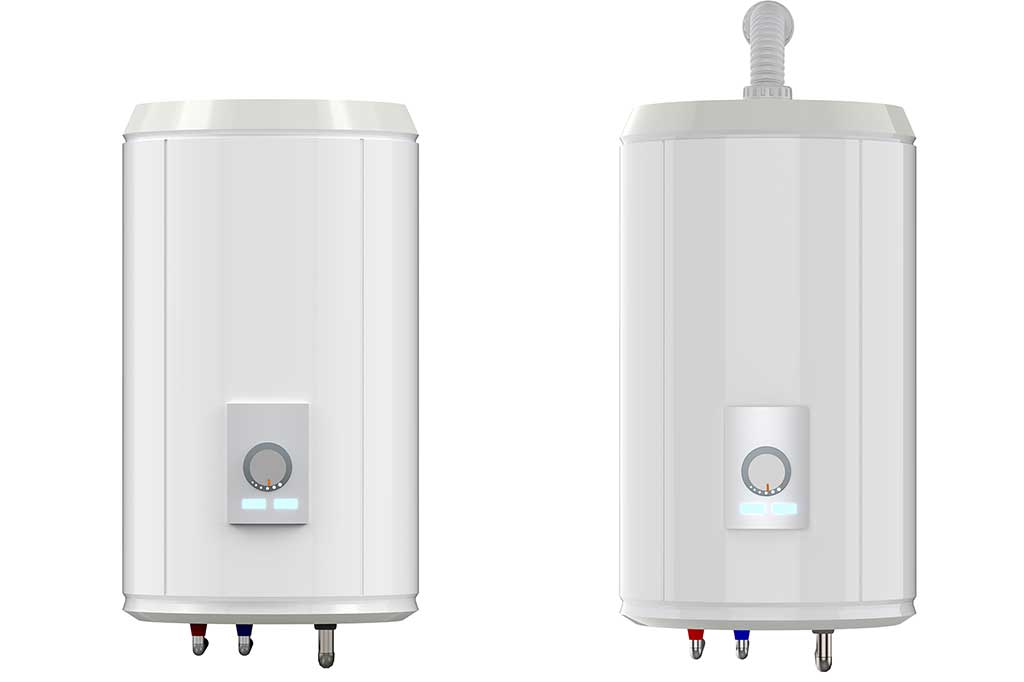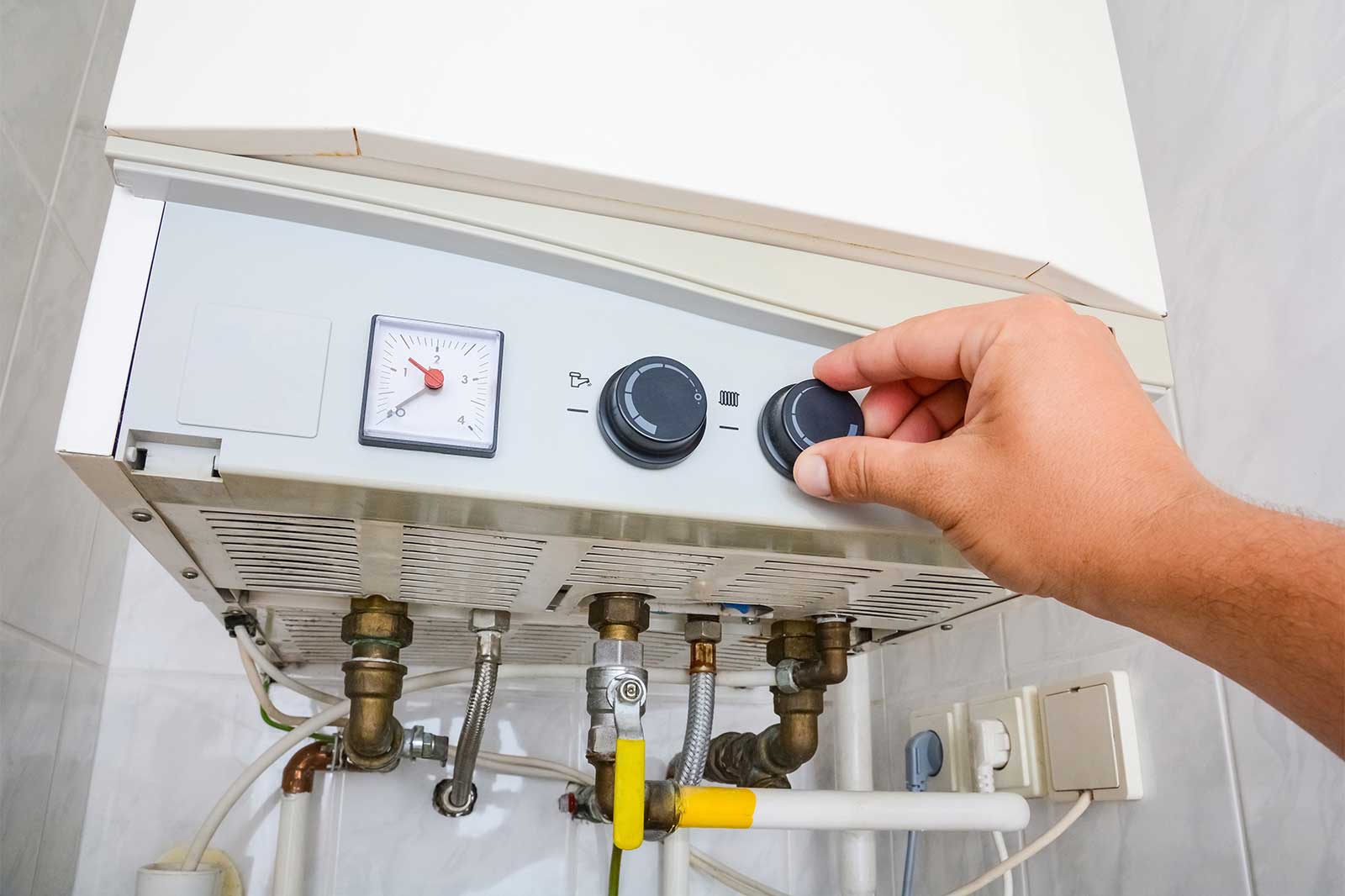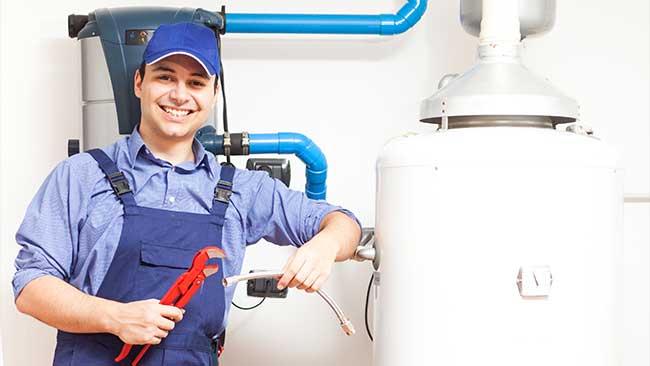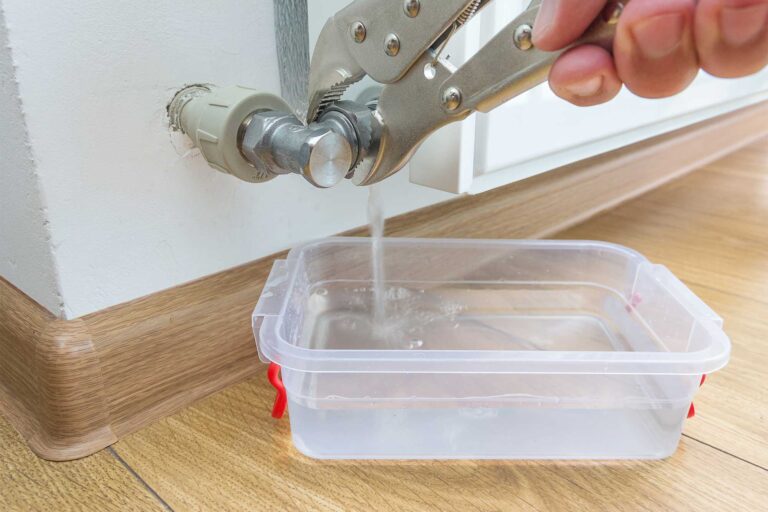Can a Water Heater Explode? A Thorough Guide
Can a water heater explode? What are the early signs you should look out for to prevent a disaster from happening? Find out in our comprehensive guide.
Water heaters are widely used in households worldwide. They provide optimal heat during cold days and keep you warm indoors. However, they don’t last forever, especially when not maintained properly. As a team of local HVAC contractors, we are often asked: can a water heater explode? Yes. This doesn’t happen often, but if the pressure inside the container builds to a certain level, the heater might explode. If you’re wondering what causes too much pressure in a hot water heater, we have covered all you need to know.
You may have also noticed that your water heater sounds like a tea kettle when it’s on. What’s this all about? Learn in the guide below.
What Causes a Water Heater to Explode?

Let’s get straight to it: what causes a water heater to explode? Water heaters can explode when the internal temperature is too high to contain. Thermal expansion leads to increased pressure inside the heating container (furnace) and surpasses the safety limit. Typically, a rusty body leads to improper flow of heat and water within the heater. Such instances can burst water heaters.
When pressure builds inside the heating container, the pressure valves open to release it. Excessive releases may indicate a problem. For instance, frequent pressure release may indicate sediment blocking the water flow inside the container. As a result, the circulation of hot and cold water slows down and increases the pressure inside.
What happens if a water heater explodes? When a water heater explodes, it can release a large amount of hot water and steam, leading to burns and scalds. The explosion can also cause structural damage to your home, including the walls and ceiling, and damage any nearby appliances or furniture. Additionally, the explosion can cause a gas leak, which can be extremely dangerous.
Crucial Warning Signs: Hot Water Heater Going Out
As a regular water heater user, you might need more awareness of the warning signs of a hot water heater going out. We have covered a few of them below.
Leaking Pressure Valve
The pressure valve in a water heater regulates heat and pressure inside the heater.A valve leaking is one of the obvious bad water heater symptoms.
Opened T&P Valve
The T&P valve opens when the temperature or pressure increases inside the container. After releasing the pressure, the valve closes. If you notice that the valve remains open all the time, it may be a warning sign.
Rotten Egg Smell
One of the warning signs for a water heater going out is the rotten egg smell. This smell occurs due to sulfur leakage. Sulfur can be dangerous when it interacts with a flame. If you notice a foul smell, you may call a professional immediately to check your heater.
Internal Noise
The water heating tank may produce a whistling or gurgling noise due to improper flushing. Water sediment forms thick layers inside the tank and leads to increased pressure and temperature. Is a hissing water heater dangerous? Not necessarily, but consider it a warning sign.
Poor Installation
Improper installation can cause gas leaks and pressure problems inside the heating container. While it is hard for an average person to identify installation issues, you may always call a trusted contractor to install your water heater and save up on long-term costs.
Brown or Unclean Water
Unclean or brown water may cause problems when ignored for long. Such water condition indicates the presence of sediment inside the heating container and is on our list of early water heater danger signs. You should get it cleaned at your earliest to avoid explosions.
Vital Tips to Prevent Water Heater Explosions
Having a water heater at home is a blessing in cold seasons. However, you may keep a check on the heating system to avoid water heater explosions. Although matching the expertise of a professional may be difficult, you can follow a few vital tips to prevent explosions.
Functional Pressure Valve
You should thoroughly check your heater’s pressure valve every once to ensure it works properly. If you notice problems, call a professional heating contractor to replace the faulty valve with a fully functional one.
Temperature Maintenance
An important tip to avoid water heater explosions is maintaining optimal heater temperature. Always keep it between 120-125 degrees to avoid disasters. Any temperature beyond this range may increase the pressure inside the container.
Proper Heater Service
While many households overlook the importance of periodic service, you may get your water heater cleaned at least once every year to avoid sediment layers. If you don’t want to wait until your hot water heater explodes, calling a professional to clean the heater can save you from disasters.
Licensed Professionals
When calling a plumber for heater service, you may ensure that the company holds a valid service license to avoid any problems down the road.
Want to Avoid a Gas Water Heater Explosion? Hire Experienced Local Contractors
Now that you’re aware of the main water heater explosion warning signs, what should you do next? If you recognized some of them, it’s time to call the pros.
Professional contractors are licensed and trustable for heater installation and maintenance needs. Blue Valley Heating and Cooling has an excellent reputation across Colorado for offering modern solutions to heating and cooling problems. Here’s why you should consider them to avoid an electric or gas water heater explosion.
- As a comprehensive HVAC provider, we cater to your needs in the constantly evolving landscape of technological advancements.
- Our welcoming work environment extends to our clients, as we strive to support and assist your loved ones during challenging times.
- At our core, we believe in tailoring home energy solutions to suit the unique requirements of each individual’s living space, ensuring the most efficient and effective solution possible.
Get in touch with one of the professionals today to discuss your water heater needs.



